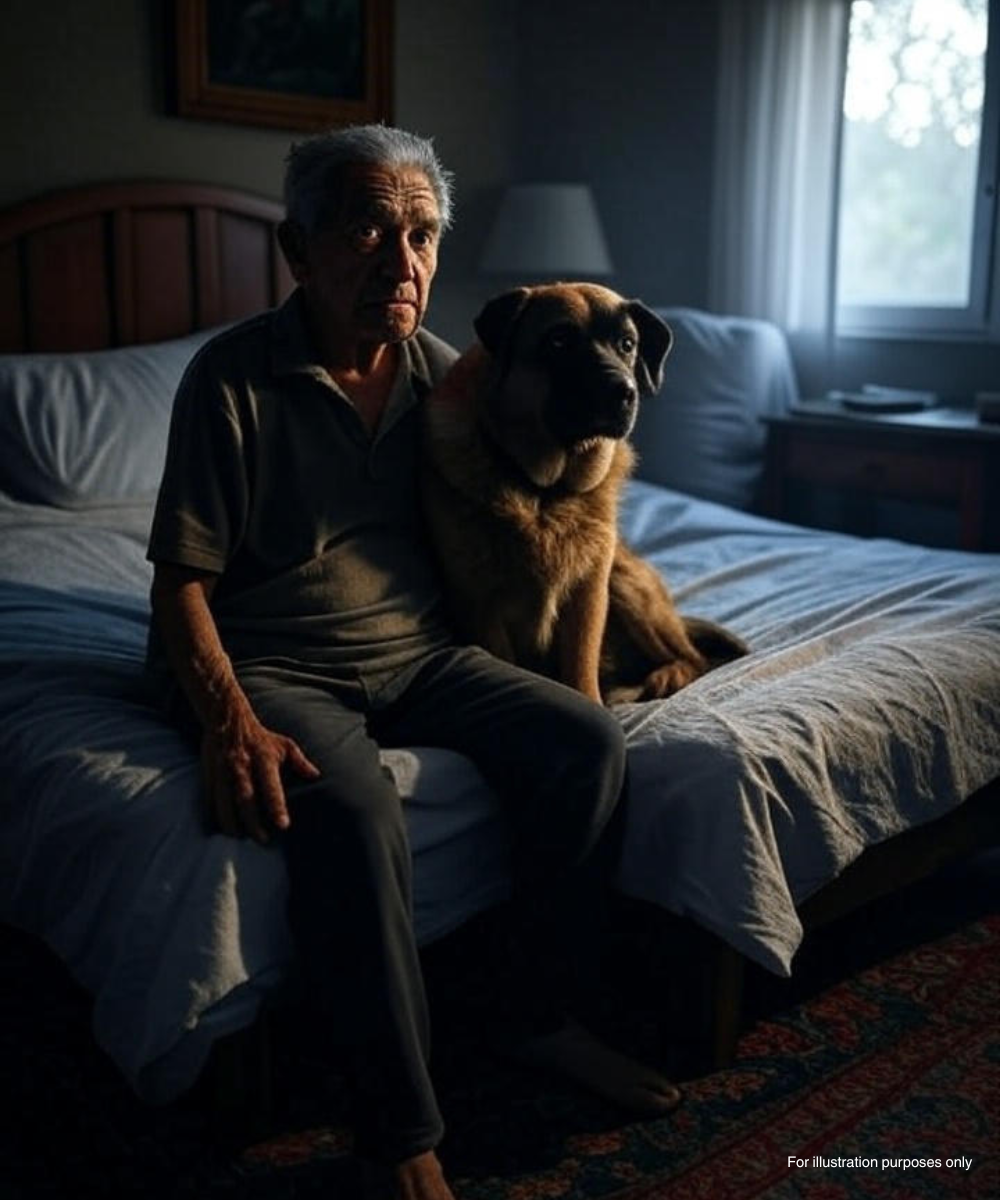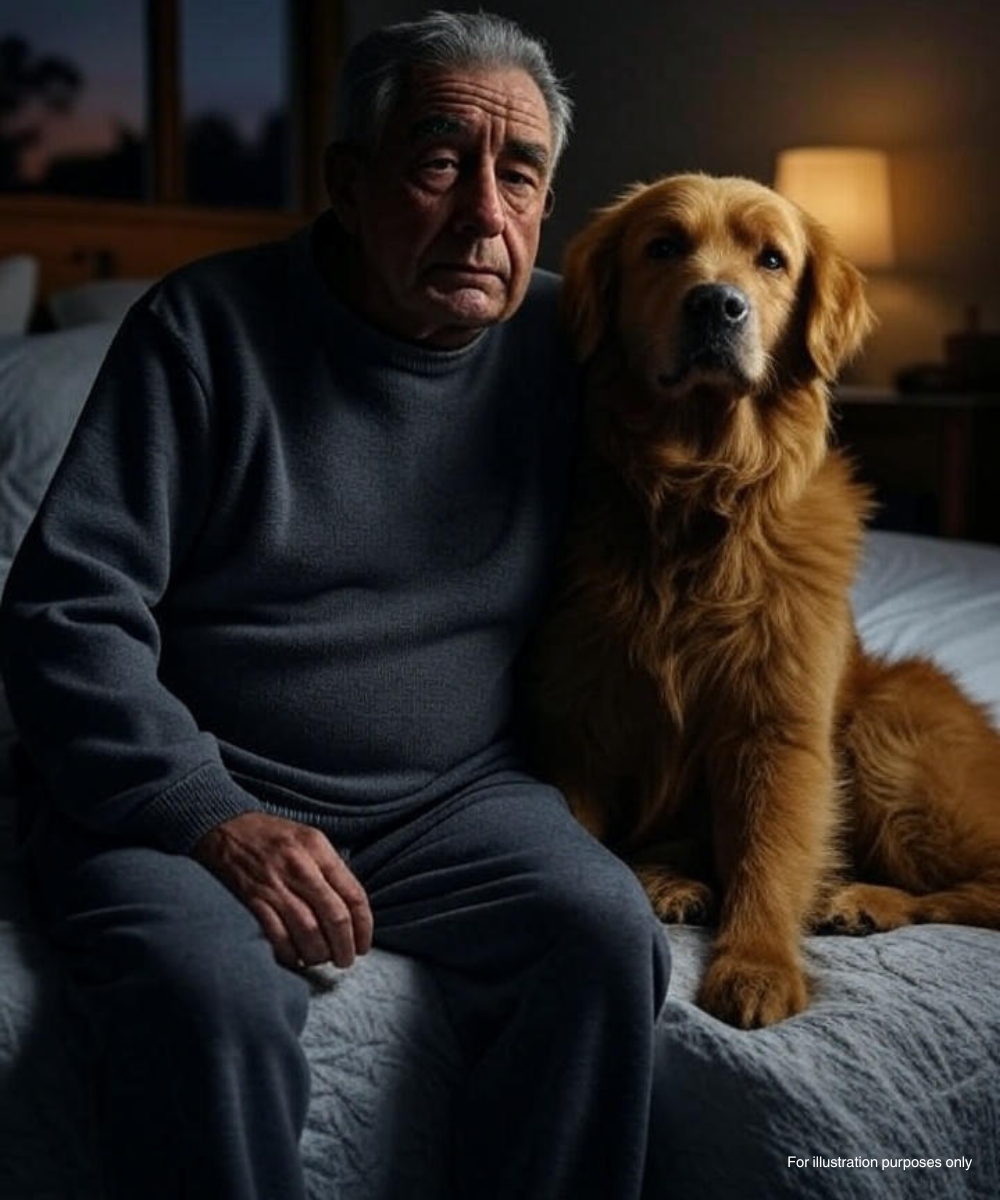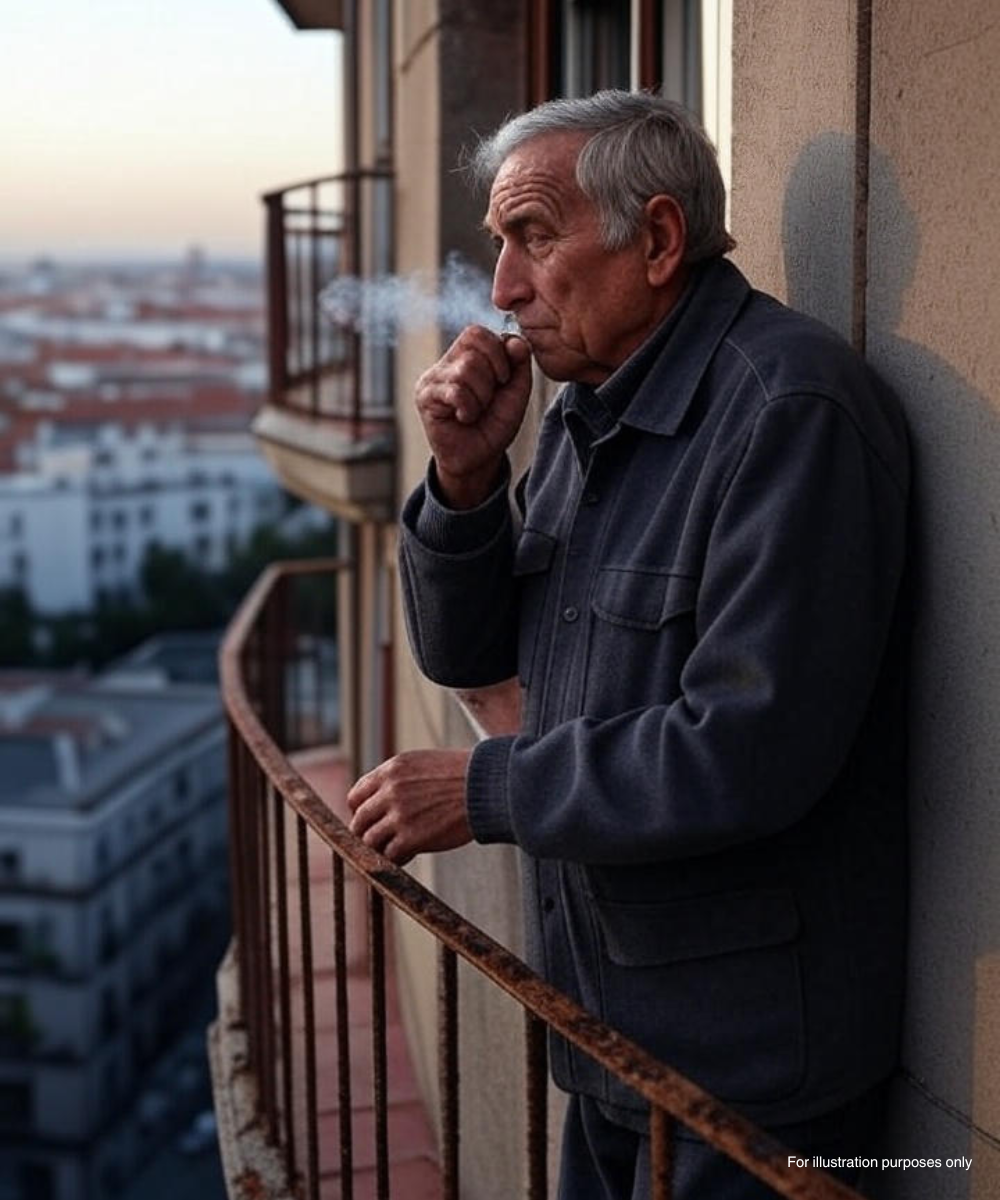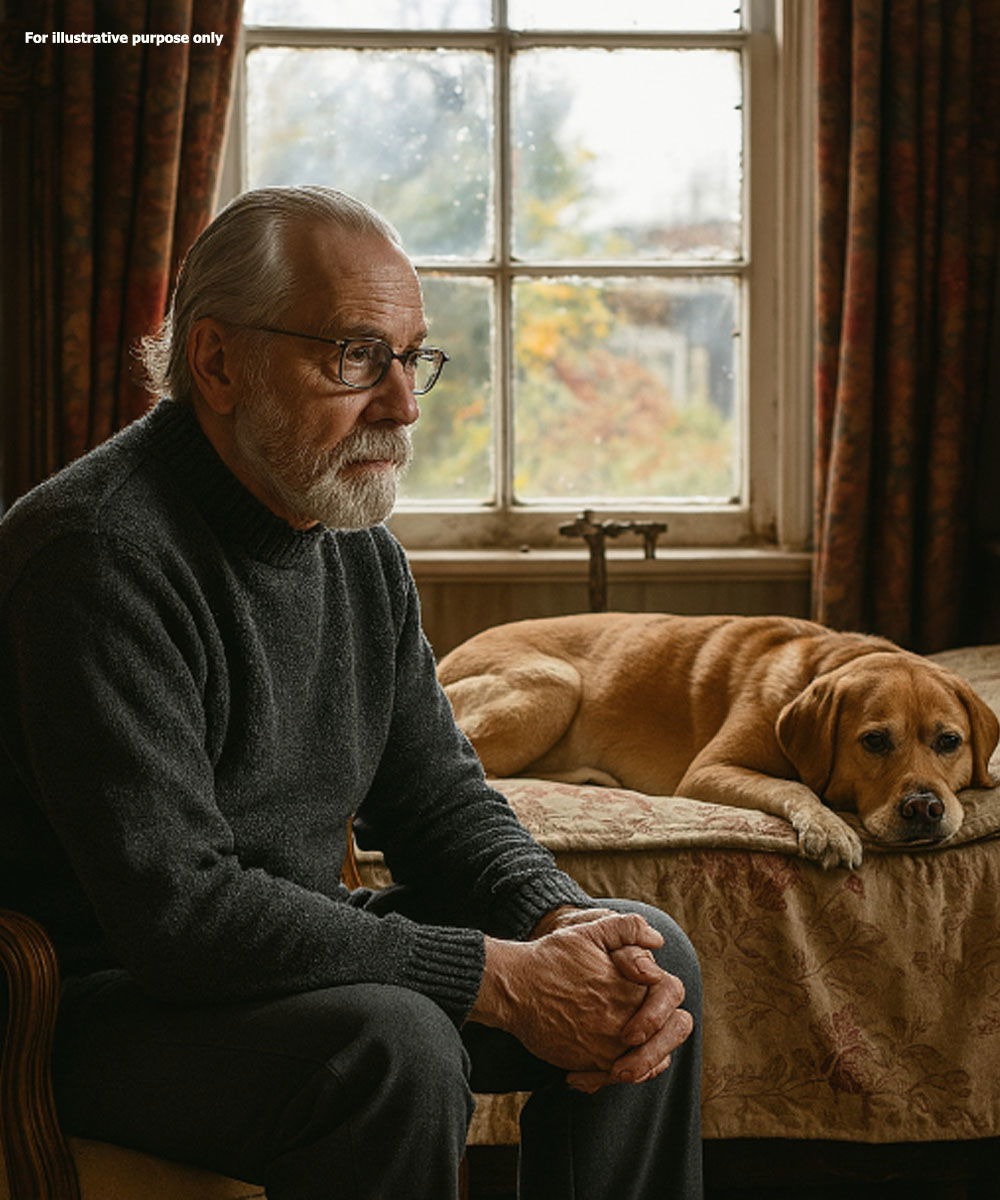At 72, Víctor Manuel never imagined he’d be staring out from the fifth-floor balcony of a building he no longer felt welcome in—his own daughter’s apartment. The late afternoon sun stretched long shadows across the city of Madrid, but the chill settling in his bones had nothing to do with the weather.
His fingers trembled as he held a half-burned cigarette, not from nicotine withdrawal—but from something deeper. Shame. Grief. And above all, betrayal.
Behind him, the door creaked open.
“Papá, again with the smoking?” his daughter, Marisol, snapped. “All we asked is that you stay in your room. Pepe and Antonio are sleeping on a sofa bed. It’s not fair!”
Victor turned slowly, his eyes sunken but still kind. “Mija… this was my home. I gave everything to make sure you had a good life. Must I now be shut away like an old coat in the attic?”
Marisol’s eyes narrowed. “Well, maybe you should think about a place where someone can care for you properly… Like a residence with nurses. You’re not… well, you’re not young anymore.”
Her voice was coated in artificial sweetness, but the words were barbed. She didn’t even wait for a response—just spun on her heels and slammed the door, leaving behind the heavy scent of her perfume and a silence that screamed.
Víctor sank into his worn armchair, his hand instinctively reaching for Canelo, the aging mutt who’d stayed by his side even after Nadia, his wife of forty years, passed. That dog had more loyalty than his own blood.
He hadn’t cried in years—not when his wife died, not even when he was first asked to “just stay quiet” when guests came over. But now, hot tears spilled freely. Not from weakness, but from a deep, silent despair.
Then came a soft voice.

“Grandpa?” It was Antonio, his eight-year-old grandson. “Don’t you love us? Mom said you’re selfish for not giving us your room…”
Victor’s throat clenched. She told them that. She had poisoned even the children’s minds.
He forced a smile. “Of course I love you, mi niño. This room—this space—will be yours.”
The next day, Marisol beamed like she had won the lottery.
“Dad, thank you! There’s this wonderful nursing home I heard about. They even have medical staff, and it’s peaceful. We’ll visit often. And don’t worry—Canelo will be fine!”
Two days later, Víctor stood outside a crumbling facility on the edge of Toledo. The smell of mildew met him before the front doors did. There were no nurses bustling around, no warm welcomes—just the echo of forgotten footsteps and the quiet hum of old souls left behind.
His room was a cell in pastel colors. Peeling wallpaper. No TV. Just a creaky bed and a roommate named Carmen, whose soft voice belied years of abandonment.
“Another one sent away?” she asked as she folded her thin blanket.
Víctor nodded. “By my daughter. For a room.”

She gave him a sad smile. “My nephew did the same. Took my apartment, brought me here like luggage. But at least we’re not in the streets.”
In that place of faded people and fading days, Víctor found solace in Carmen. They strolled the courtyard when weather allowed, sat side by side on the bench as the sky dimmed. In her presence, something began to thaw within him.
Still, a question gnawed at his heart: What happened to Canelo?
Weeks passed. No word from Marisol. No phone calls. No visits.
Then one morning, fate intervened.
While walking with Carmen, Víctor spotted a familiar face beyond the garden fence. Eusebio—his old neighbor from Madrid.
“Víctor! They told me you moved to the countryside with Canelo!”
Víctor froze. “What do you mean? Canelo…?”
Eusebio’s face fell. “Your daughter said you took him. But the poor thing was wandering the streets. I found him, thank God. A kind woman took him in.”
Victor clutched the fence, his breath ragged. She had abandoned his dog. The one creature who had remained loyal.
Eusebio’s expression shifted. “You shouldn’t be here. You still own that apartment, don’t you?”
“I never signed anything over. But… she knows people. Has connections.”
“I’m a lawyer,” Eusebio said simply. “If you want justice, I’ll help.”

Before leaving, Víctor turned to Carmen. Her eyes were already wet.
“Don’t cry, Carmencita. I’ll come back for you, too.”
She laughed through her tears. “You silly old man. Why would you want me?”
He smiled. “Because you saw me when no one else did.”
The next weeks were a storm of legal documents, meetings, hearings.
Marisol had tried to rent the apartment behind his back. But with no legal transfer of ownership, her paperwork was void. The judge didn’t just restore Víctor’s rights—he admonished Marisol for exploiting her father.
Still, Víctor’s heart ached. “What if she tries again?”
“Then we protect you,” Eusebio reassured. “Sell the place, give her a fair share, and buy peace.”
That’s exactly what Víctor did.

Months later, he moved into a modest but cozy wooden house in a quiet village. Canelo ran in circles on the freshly cut grass, barking happily. And Carmen? She came too. With no ties left, she chose him. The man who had nothing but love left to give.
They planted roses. Drank coffee on the porch. And sometimes, they simply held hands and listened to the wind.
One evening, Carmen looked up from her knitting and said, “You really saved me, you know.”
Víctor smiled. “No, we saved each other.”
